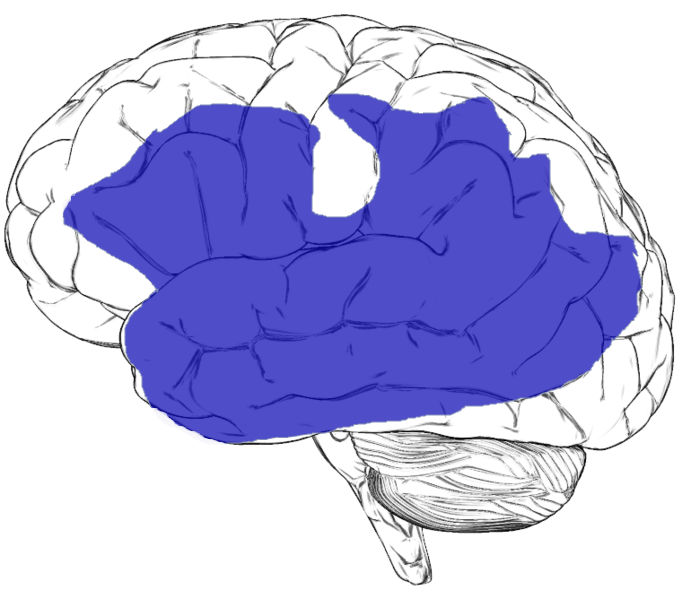Aphasia
Aphasia (uh-fay-zhuh)
Aphasia is an acquired communication disorder impairing part or all of a person's use of language. It occurs after parts of the brain controlling language are damaged (e.g., after a stroke, head trauma, brain turmour), impairing a person's ability to speak, write and/or understand words. It affects every person differently and may have an impact on all of their languages.
It should be noted that aphasia is not an impairment of intelligence.

A person with aphasia may have problems:
- Thinking of the words to say
- Saying words the right way
- Speaking of writing in sentences that make sense
- Understanding words or conversations
- Following directions
- Reading and understanding what was read
- Spelling words correctly.
Contents
Definitions and Scope
Types of aphasia?
Target Population: [name of target group]
[identify target group and define who is included or excluded in this category: you want to get it just right: not too broad that it includes those you may not want to include, and not too narrow that it excludes those you want to help. You might be too exclusive: e.g. defining ‘vulnerable’ seniors as ‘low-income’, but you may want to include those without family support. Therefore, you may want to define vulnerable as ‘poor and/or with low family support’. You might be too inclusive: e.g. ‘latchkey kids’ may include those who have working parents, or those with serious behavioural problems.]
Client Segments
Size of Target Population
[How many people with aphasia are there in Singapore? Any estimates?]
Desired impact for target group
A society where there is gender equality (Aware)
‘Equal Space, Equal Voice and Equal Worth’ for women in Singapore (SCWO)
Issues Facing Persons with Aphasia?
Issue #1:
Existing Resources
Gaps and Their Causes
Possible Solutions
Issue #2:
Existing Resources
Gaps and Their Causes
Possible Solutions
Issue #3:
Existing Resources
Gaps and Their Causes
Possible Solutions
Issue #4:
Existing Resources
Gaps and Their Causes
Possible Solutions
Issue #5:
Existing Resources
Gaps and Their Causes
Possible Solutions
Resource Directory
Aphasia SG
www.aphasia.sg | Instagram: @aphasia.sg | aphasiasg@gmail.com
Organised by a team of speech and language therapists, Aphasia SG is a 100% volunteer-run non-profit organisation whose flagship programme is Chit Chat Cafe, a free monthly “pop-up café” for persons with aphasia (PWA) and their caregivers to interact and enjoy a cup of coffee together in a safe space.
Its other flagship programme is the Aphasia SG Choir, which is conducted by music therapist volunteers and that has weekly evening rehearsals at a central location.